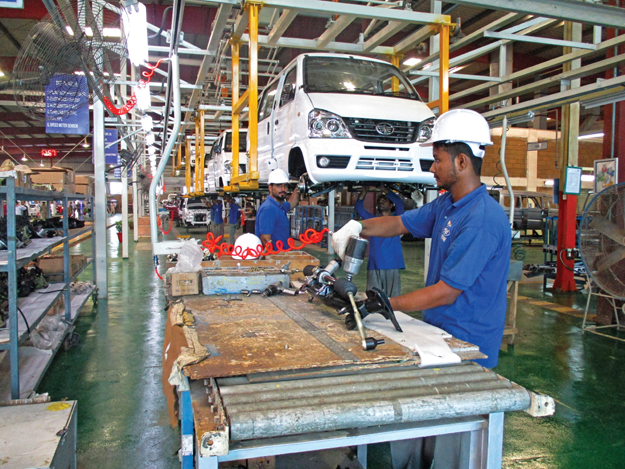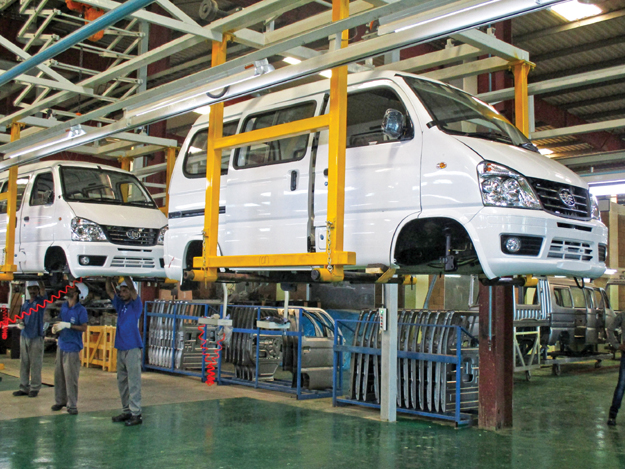China offers high-yielding rice variety to boost Pakistan’s food security
CHANGSHA, China: Prof Yuan Longping, globally known as ‘Father of the Hybrid Rice’, has claimed to have developed Super-Hi Hybrid Rice seed, having more than double the yield potential of the paddy varieties currently under cultivation around the world.
“We have recently developed a very successful Super-Hi Hybrid Rice variety with a yield potential of 18 tons per hectare,” said Longping in a rare conversation with the visiting Pakistani journalists.
“This latest tier variety can help Pakistan in increasing rice yield very significantly and China will be happy to share newly developed very high-yielding rice variety with its friendly neighbor.”
The typical production of presently sown hybrid rice in China and Pakistan is around 7-8 tons per hectares. The Chinese expert observed that down the line, China wanted to help Pakistan in developing latest super-hi hybrid variety of rice for cultivation in local conditions.
“I think this new variety is the toughest ever in commercial large scale trials in terms of yield and this development and sharing its benefits have been a part of my lifelong wishes,” said he pointing to a rice plant sown in a pot in a corner of his room for demonstration purpose.
Prof Longping, 86, is a simple-looking man who’s pioneering research has ended famine and hunger from the world most populous country and other regions. Known as one of the world’s outstanding scientists in agricultural science, he worked hard for combating food shortages and hunger through his successful development of high-yielding rice varieties.
The United Nations (UN) Educational, Scientific and Cultural Organization, the UN World Intellectual Property Organization, the UN Food and Agriculture Organization (FAO), as well as academic and non-governmental institutions in the US, Japan, Great Britain and other countries, conferred on him nine honorary titles and prizes.
He received the 2004 World Food Prize for his breakthrough achievement in developing the genetic materials and technologies essential for breeding high-yielding hybrid rice varieties. He continues his innovative scientific work as Director-General of the China National Hybrid Rice Research and Development Center in Changsha, Hunan Province, China.
Longping is widely acknowledged as the first person to discover how to achieve fast growth with greater yield and stress resistance. In 1964, he happened to find a natural hybrid rice plant that had obvious advantages over others. Greatly encouraged, he began to study the elements of this particular type. In 1973, in cooperation with others, he was able to cultivate a type of hybrid rice species which had great advantages.
It yielded 20 percent more per unit than that of common ones. And then he never looked back. His untiring efforts on the front of research continue. Now, about half of China’s rice production area is planted with hybrid rice. Worldwide, more than fifth of rice comes from rice species created by hybrid rice following Longping’s breakthrough discoveries. China has recently built a sprawling Hybrid Rice Museum to solely highlight his work. This facility includes extensive demonstration of his several rice varieties sown in fields.
While warmly welcoming ‘Pakistani friends’ at his institute, he said that one of his friends from Pakistan told him that hybrid rice varieties are performing well in their country. “The area of hybrid rice in Pakistan is about 200,000 hectares and per hectare yield of hybrid rice is as high as eight tons, which is very good,” said Longping. However, he said, the currently Pakistan needed to further increase the yield of the hybrid rice varieties.
“The new breakthrough in increasing yield of hybrid rice will help Pakistan augmenting its production,” he observed.
To a query about the role of hybrid rice role in ending hunger from the world, he said, China has opened the doors for all to take the advantages of the high-yielding hybrid rice varieties. “Our government has allowed us to spread the benefits of hybrid rice to other nations, especially developing countries,” said the Chinese scientist.
He added that it was his pleasure to help Pakistan in this regard. “I have heard many very good things about Pakistan. And I am very happy that hybrid rice varieties are performing very well in your country,” the expert said.
Replying to a question, Longping said, he did not face any obstacles in his quest for the hybrid rice seed. “Now our focus is on the development of disease-resistance and stress-tolerant super-high hybrid rice varieties,” the professor said replying to another query.
Referring to climate change and its impact on agriculture, he said, the planet is becoming warmer and warmer due to climate change. “We are working on heat-tolerant varieties, which can be sown in Pakistan where temperature is generally very high in summer. Hot weather at flowering stage is not good for hybrid rice and it should be lower than 38 degrees. Same is the case with growing problem of water scarcity,” Longping explained.
On Pakistan-China friendship, the ‘father of hybrid rice’ emphatically said there was a ‘very good friendship and relationship between China and Pakistan.’ “This friendship continues helping each other. Pakistan also is a very good country and China has a good friend in the neighborhood,” said the elderly agronomist. In the next breath, Longping wished Pakistan to become better and better and a leading nation.
Mansoor Ahmad, the leader of Pakistan media delegation, in his welcome note said that Prof Longping has done a great job for ending food scarcity from China as well as the whole world by introducing hybrid rice.
At the end, Fakher Malik, a veteran journalist, presented the renowned scientist a well-painted portrait of himself. Thanking, the Pakistani journalists for this gesture of goodwill, the Chinese scientist, said he would keep this portrait in his office as a reminder of this wonderful occasion.
https://www.thenews.com.pk/print/22...rice-variety-to-boost-Pakistans-food-security





